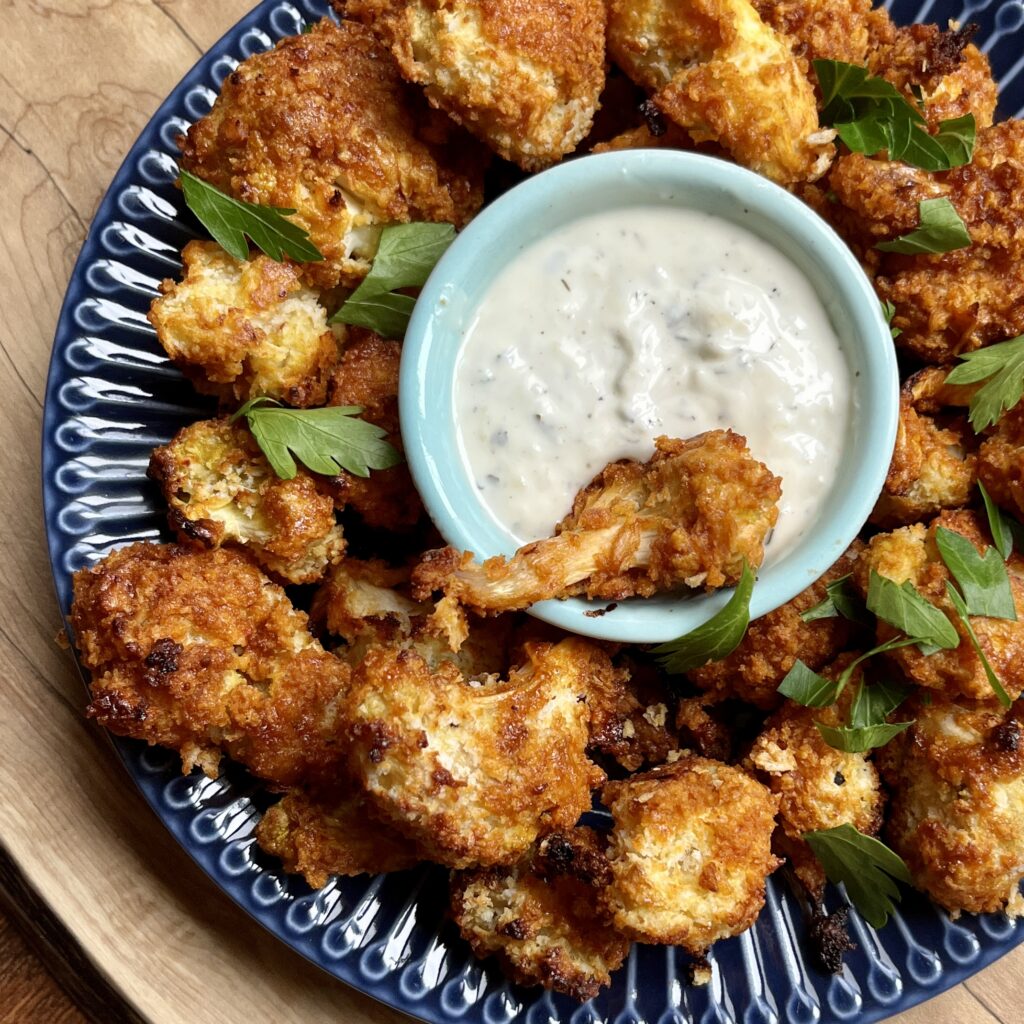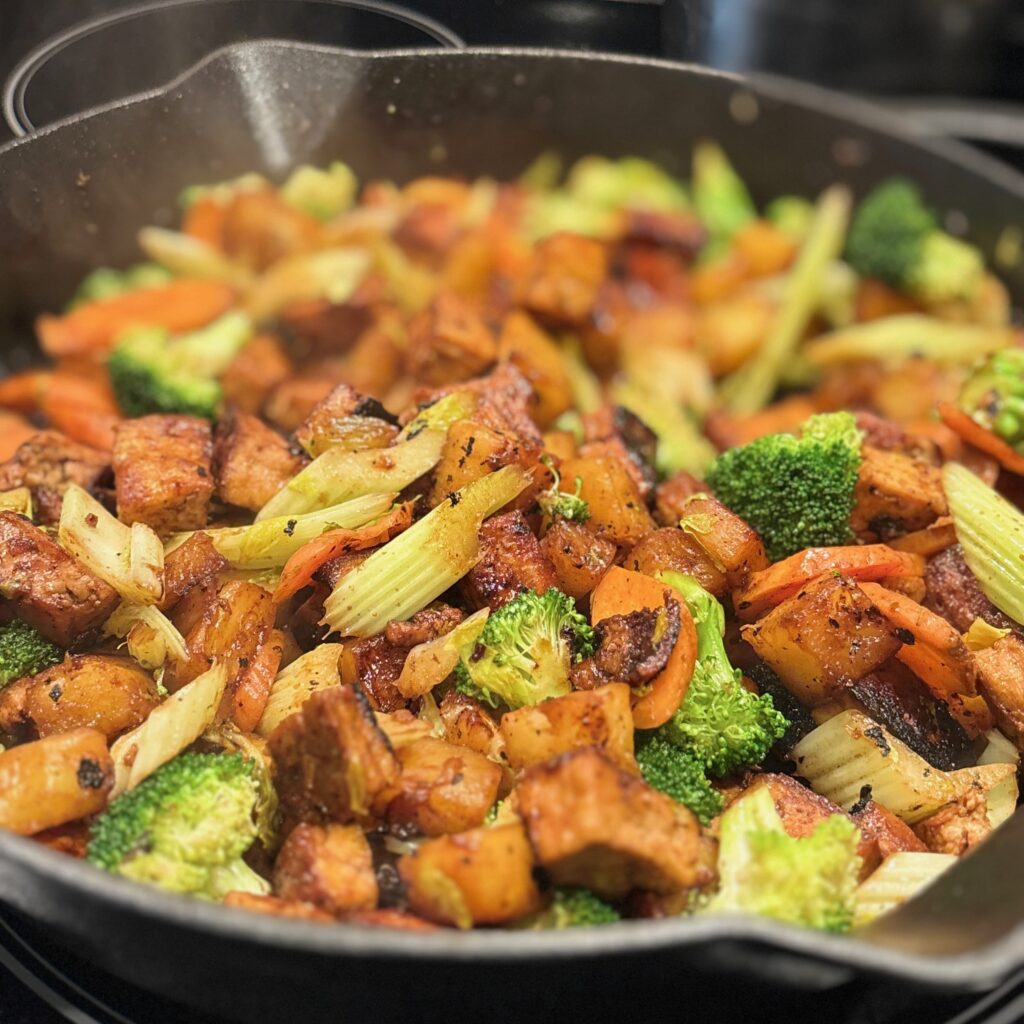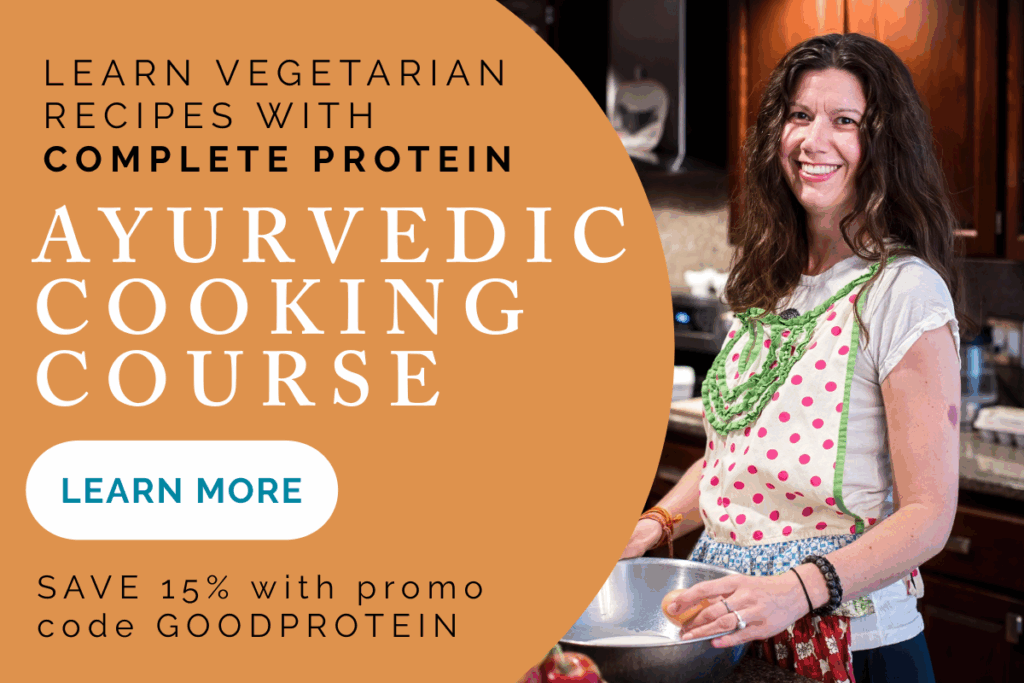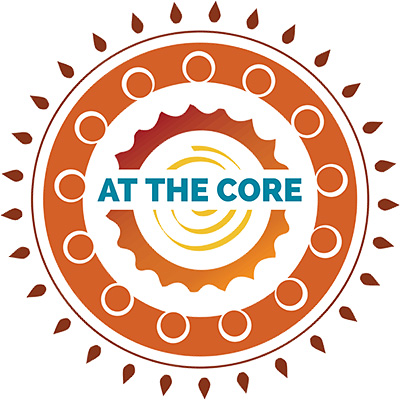Can you get enough protein without eating meat? Yes — and not just according to Ayurveda, but also nutritional science. Whether you’re vegetarian, vegan, or simply looking to rely more on plant-based meals, it’s important to understand how protein works in the body and how to combine foods for optimal nourishment.
Understanding Protein and Amino Acids
Protein is made up of amino acids — twenty in total, nine of which are essential, meaning our bodies cannot make them and must get them from food.
- Animal-based foods (meat, dairy, eggs) contain all nine essential amino acids in proportions that make them “complete” proteins.
- Most plant-based foods contain some, but not all, of the essential amino acids. These are known as “incomplete” proteins.
- By combining different plant foods, you can get the full spectrum of amino acids — effectively creating complete proteins from vegetarian sources.

Buffalo Cauliflower with Panko and Yogurt Dip
Key Food Combinations That Create Complete Proteins
You don’t need to eat all nine amino acids in one bite — but pairing certain foods within a day, or even a meal, helps meet your body’s needs. Here are some classic and accessible vegetarian combinations that you’ll find time-tested within the history of many cultures.
- Grains + Legumes
- Examples: Rice and mung dal, whole grain bread and chickpea stew, corn tortillas and black beans, barley and lentils
- Why it works: Grains are low in lysine but high in methionine; legumes are the opposite. Together, they complement each other.
- Legumes + Nuts or Seeds
- Examples: Chickpeas with tahini (as in hummus), lentil salad with sesame oil dressing, black beans wrap with sunflower seeds
- Why it works: Seeds and nuts add additional amino acids and healthy fats, which also nourish nerve tissue and a feeling of satisfaction.
- Whole Grains + Dairy or Eggs (for vegetarians who include them)
- Examples: Oatmeal with milk, toast and eggs, rice with yogurt
- Why it works: These combos naturally offer complete protein and are easily accessible and simple to prepare.
- Soy (a complete plant protein on its own)
- Examples: Tofu, tempeh, soy milk
- Why it works: Soybeans uniquely contain all nine essential amino acids and can be easily incorporated into many meals.

Easy Tofu Stir-Fry
Why Digestion Matters in Ayurveda
In Ayurveda, it’s not just what you eat — it’s what you digest.
Even the most protein-rich meal can leave you tired, bloated, or foggy if it overwhelms your digestive fire (agni). Many plant proteins, especially beans, lentils, and tofu, have light and dry qualities that can aggravate vata dosha and lead to gas, sluggish digestion, insomnia or joint discomfort.
To support optimal digestion and absorption:
- Cook beans and lentils thoroughly with generous amounts of digestive spices like ginger, cumin, coriander, fennel, asafoetida (hing), and turmeric.
- Add a small amount of healthy oil (such as ghee, olive oil, or sesame oil) to ground the lightness and aid nutrient assimilation into the deeper tissues (dhatus) of the body.
- Avoid cold or raw versions of legumes — warm and well spiced is best for digestive ease.
A Balanced Approach
You don’t need to meticulously track amino acids in every meal. Simply focus on variety, balance, and mindful preparation:
- Rotate your grains, legumes, seeds, and a rainbow colour of vegetables
- Use herbs and spices not only for flavor but for digestive support
- Listen to your body — signs like fatigue, bloating, and brain fog can indicate that your digestion may need more attention
Protein deficiency is rarely about not eating enough — it’s more often about weak digestion, excess stress, or an unbalanced lifestyle. When your food is well chosen, well prepared, and well digested, a vegetarian diet can offer all the protein your body needs to feel strong, grounded, and clear.



